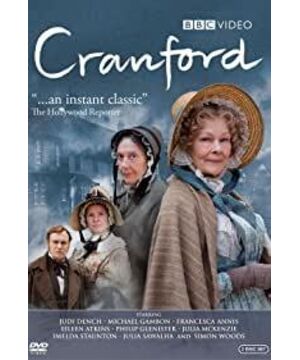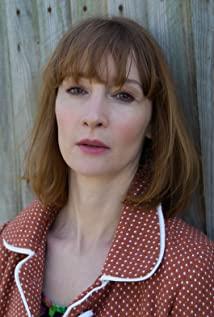Female writers are often criticized as "only writing about parental short stories", but who knows that parental short stories often contain eternal truth. Austin can only write about tea parties, marriages, and inheritance, but principles like "a rich bachelor always finds a wife" have been shining brightly since the Victorian era, and I am afraid it will continue to shine all the way.
The reason may be because women stay at home, so they concentrate all their observations and experiences in a small family, which itself is the smallest microcosm of society. There is no trend that affects society that does not leave its mark on a family. Lost part of the breadth, but gained a rare depth. In the era of descendants like Agatha, not only did women get to work, some of them simply had the ability to travel around the world. The last obstacle to female writers was also removed.
Mrs Gaskell's name is more prominent on the posters for Cranford's play than any of the leading actors. It's no wonder that the BBC's TV series are good-looking. Such a country with an excellent literary tradition can't tell good stories. It's easy to make money from the long river of history. Shakespeare Austin's fried rice is enough. After checking the information, I was even more surprised. It turned out that the highly praised "South and North" and "Beautiful Lady" were also adapted from Mrs. Gaskell's novels.
The era in which Mrs Gaskell lived is commonly known as the "Victorian Era". Queen Victoria reigned for 60 years, like the mother Jia in the Dream of Red Mansions, her whole life was the most glorious moment of the British Empire; it was also in her era that British society experienced the huge development of capitalism, and all social changes, It's all on display in the peaceful everyday life of the small town of Cranford.
At the beginning of the story, a young doctor graduated from Cambridge came to the town and used a new medical concept to save the carpenter's arm that was going to be amputated. Economic development drives modern medicine, and from the handover of a young doctor to his elderly uncle, the whole story sets the tone for progress. Immediately afterwards, the female nobleman's housekeeper secretly taught poor children to read and write to change their fate; the millinery maker showed the ambition and helplessness of the first generation of professional women; the general who had a military career devoted himself to the railway business in his later years; Shops have also begun to see machine-printed Valentine's Day cards.
There are changes and there are constants. What remains the same is the deep human feelings that hide behind the rumors on the surface of the town, those who judge what "Proper" is. Courtesy visits should not exceed 15 minutes, eating oranges should not be overflowing, and inviting unfamiliar men to visit must be initiated by the male host at home. What remains the same is the love between men and women, the care of friends, and the help of neighbors. The emotional climax is Miss Matty, whose women gave out pocket money to help the bank go bankrupt and lose their source of life.
The handsome and kind young doctor falls in love with the beautiful and gentle pastor and eldest daughter at first sight. The writer does not even need to find another way. He just picks the most common male talent and female appearance, and the hero saves the beauty model to write, and arranges a few harmless random points, which is A sweet play. When the doctor asked the pastor to allow him to pursue his daughter and propose marriage when she has a stable career and the ability to provide a comfortable life for the person she loves, the pastor first asked how sincere he was, because "I have loved her for 20 years", I actually There is some moving. This is seriousness and sincerity that have been missing for a long time. Today, when pursuit and love are so cheap, holding hands is not a casual word. If we lose the qualities we cherish because everything is so readily available, who says old-school values don't endure?
In Mrs. Gaskell's time, it was not easy to have a pair of eyes to see through the beauty and sin of capitalism. In the simple and warm daily life of Cranford, there are railway bombing incidents, some nobles went bankrupt because they could not keep up with the times, and some people saw the destruction of the natural scenery and simple way of life by the machine industry early.
The happy ending may come from the author's belief as a woman. The empathetic Mary Smith in the story is not only the mediator of many events in the town, but also a female representative of the past and the future. You know, every bit of progress this society has made, good women have made great contributions.
View more about Cranford reviews











